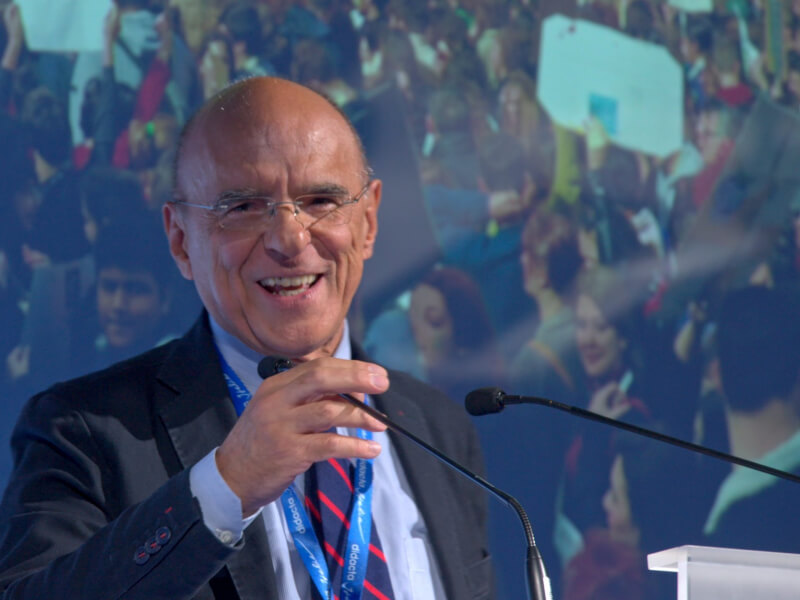22 July 2024 – “A nation of sheep breeds a government of wolves.” Often attributed to an unknown author, these words have long held true for Kenya’s citizenry until recently. In the past few weeks, a wave of political awareness championed by ‘Generation Zs’ has swept across the country, uniting citizens in their demand for accountability, better governance and full adherence to constitutional mandates.
The catalyst for this awakening was the Finance Bill 2024. This bill sought to increase Kenya’s revenue to bridge the gap necessary to demonstrate the country’s ability to service its International Monetary Fund (IMF) debt. The bill sparked widespread outcry amplified through social media activism and nationwide protests. Consequently, when the bill reached President William Ruto’s desk, he declined to sign it into law, instead sending it back to parliament. Only time will tell whether it is truly dead. The President described the resistance as a miscommunication between the state and its people, arguing that the bill was intended to drive the country’s economic development forward, further reducing how much more the country would need to borrow to achieve that.
From an African perspective, this situation is a superficial solution to a deeply rooted issue, one that reflects the ongoing violation of state sovereignty in African countries. Historically, African leaders have fallen short of overcoming the influence of Western interests, perpetuating an approach to African development that relies heavily on external high-interest, high-cost debt. Reflecting on the Finance Bill 2024, the President claimed it was part of a plan to enhance investment in key social and economic infrastructure to advance the development agenda. However, this rationale is problematic because it highlights the potential benefits of debt while ignoring its detrimental generational effects on the populace. High debt levels undoubtedly compromise the future and aspirations of the people and inevitably stifle their democracy.
Neo-colonialism is evident in how Bretton Woods institutions continue to dictate austerity measures, ensuring that countries like Kenya honour their debts regardless of the means employed. Shortly after the Finance Bill’s rejection, Moody’s, a prominent Western global rating agency, downgraded Kenya’s credit rating to “very high credit risk,” labelling it as junk status. This downgrade did not stem from Kenya defaulting on any of its debt but from its citizens’ opposition to a punitive revenue-raising method backed by the IMF. This situation underscores the pervasive influence of foreign interests on Kenya’s sovereign decisions.
Notably, Kenya has some of the highest-paid lawmakers globally. Ironically, following the protests against the Finance Bill 2024, President William Ruto’s cabinet, members of parliament, governors, and other top state officials are set to receive a salary increase beginning July 2024 to cushion themselves against the high cost of living. This comes against a backdrop of Kenya scoring 31 in the Corruption Perceptions Index as of 2023. The performance was evaluated on a scale of 0-100, where zero means highly corrupt and 100 is very clean. This stark contrast between the financial benefits enjoyed by top officials and the country’s low ranking on the corruption index underscores the pervasive issues of governance and accountability. It highlights a systemic problem where leaders prioritise personal gain over the public good, further exacerbating the socio-economic challenges faced by ordinary citizens.
This situation raises critical questions: Who is truly shaping this agenda? Who should be defining what development means for African states? Undoubtedly, it should be the citizens. By resisting the Finance Bill, Kenyans were not rejecting development; they were opposing the infringement on their freedoms and the violation of their country’s sovereignty by foreign interests. This resistance highlights a collective demand for a development agenda that is defined by the people and reflects their aspirations rather than one imposed by external forces.
It is time for a new age of leadership and an emboldened consciousness among Kenya’s leaders. A new political class. One that embraces the ideas of scholars like Amartya Sen, who defines development as a process that enhances human freedom and prioritises the growth and wellbeing of the citizenry rather than mere wealth accumulation. According to Sen, freedom is both the ultimate objective, and the primary means of development. Therefore, development should be a tool to enhance democracy and protect human rights; not a burden that undermines financial autonomy and freedom. Punitive revenue-raising methods, justified as development initiatives, are counterproductive and detrimental to democracy and freedom.
Through The New Generational Contract, a joint initiative of the St. Gallen Symposium and the Club of Rome, supported by InTent, we aim to highlight intergenerational leadership and learning as crucial avenues for strengthening this new political class. Our research indicates that greater age diversity fosters increased awareness and commitment to sustainable change. By empowering a new generation of leaders, we can enhance accountability and reimagine a new approach to African development.
In the words of Kwame Nkrumah, the developing world will not achieve progress through the ‘goodwill or generosity’ of powerful nations. It can only develop through a struggle against external forces vested in keeping it undeveloped. Ergo, Kenya and Africa should adopt a holistic approach that views self-sufficiency as achievable despite it being a slow and painful process. By strengthening institutions such as the African Union and leveraging internal strengths for mutual benefit, Africa can break free from the redundant and ineffective development paradigms imposed by the West.
It is time for Africa to chart its own path to development rooted in the aspirations and freedoms of its people.






